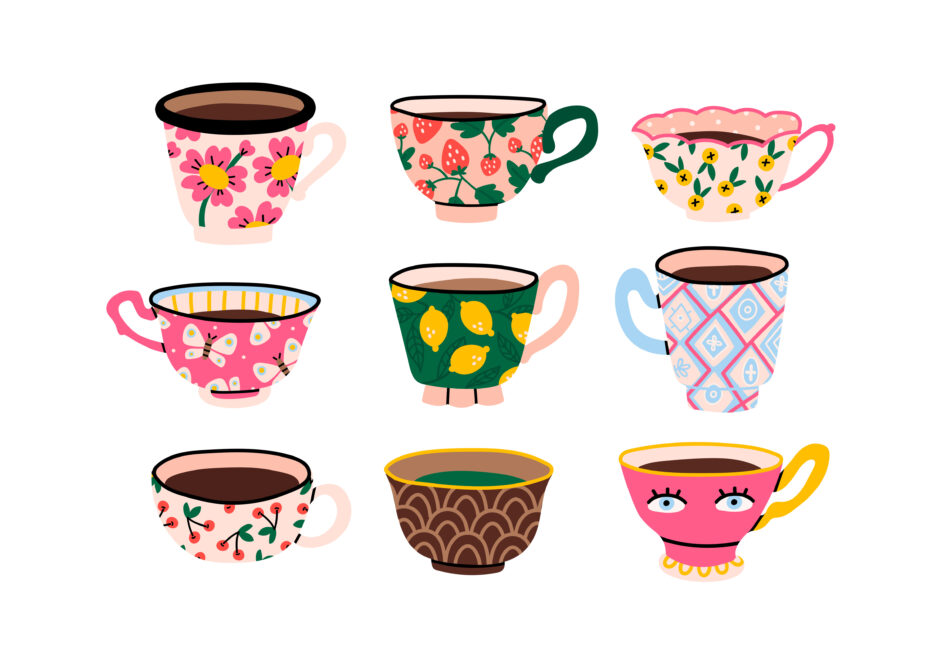Caffeine: How Much Is Too Much?
It doesn’t matter if a blizzard is whirling around outside, some coffee fans will brave the storm to buy their favorite caffeinated beverage – even an iced frappe in the middle of winter! The love runs deep. At what point should we pump the brakes? What is a healthy boundary to establish so we can both enjoy caffeine and its benefits but also protect our bodies and overall wellbeing? Read on for the quick facts!
As daylight hours wane and nudge us into a hibernation-like mode, it can be particularly challenging to bounce out of bed in the morning – even without Seasonal Affect Disorder (SAD), a type of depression linked with decreased sunlight exposure during winter months. It might feel like a natural remedy to increase caffeine intake, therefore increase perkiness. Caffeine does have health benefits (like slowing cognitive decline) but there is a limit on how much our bodies can handle without causing scary side effects. How can we use it wisely to both help our body and protect it?
The Quick Facts
Up to 400 milligrams of caffeine per day (roughly four 8-ounce cups of coffee) is considered safe and can be part of a healthy diet for the average adult. The Food and Drug Administration says 600 milligrams per day is too much. However, some coffee shops brew java containing much more caffeine per 8-ounce serving than home-brewed varieties.
One cup of brewed coffee has no fat and only a few calories. Plain coffee is nutritious – it contains micronutrients, such as potassium, magnesium and niacin.
Caffeine stays in the body for a long time; we can’t ‘flush it out,’ either. The average half-life of caffeine is five hours, but it can take up to nearly 10 hours for the caffeine to leave your system. Try your best to avoid consuming caffeine after 2 p.m. to allow your body to metabolize at least half of the caffeine you consumed. If you reach the point of unpleasant caffeine side effects, drinking water might help alleviate some symptoms but the caffeine must be fully metabolized to restore your equilibrium.
Caffeine is a central nervous system stimulant. Regardless of your personal tolerance, consuming too much caffeine could make you feel nervous, anxious, irritable and jittery and could cause an irregular heart rhythm.
Decaf varieties still contain some caffeine. Decaf coffee typically has 2 to 15 milligrams of caffeine in an 8-ounce cup. Caffeine isn’t only found in coffee, tea and soda – it’s also in chocolate, energy bars and drinks and even some peanut butters, yogurts, jellybeans and mints! Packaged foods containing ingredients, like coffee and green tea extracts, guarana, kola nut and yerba mate, will add to your daily dose.
Some medications and supplements may interact with caffeine.
- Ephedrine (used in decongestants): Might increase the risk of high blood pressure, heart attack, stroke or seizure when mixed with caffeine
- Theophylline (used to open bronchial airways): Might increase the adverse effects of caffeine, like nausea and heart palpitations, when mixed with caffeine
- Echinacea (herbal supplement used to prevent colds or infections): May increase the concentration of caffeine in your blood and may increase caffeine’s side effects
Be sure to talk with your primary care physician or pharmacist about whether caffeine might affect your medications.
Sources:
“Caffeine: How Much Is Too Much?,” mayoclinic.org, accessed on Nov. 8, 2021.
“Are You Getting Too Much Caffeine?,” Julia Calderone, consumerreports.org, Sept. 11, 2016.

